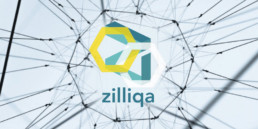Facebook and a Crypto Payments Network
Business Insider reports that Facebook has been talking to an open-source payment-tech company, Stellar, about ways in which FB might use blockchain technology.
The gist of the talks is that FB, which has a blockchain apps team led by David Marcus, wants to push into finance and go head to head with the payment networks of the big banks.
One of the most commonly cited benefits of blockchain over traditional payment processing is … speed. A recent JP Morgan Research Note contrasted a transaction on Ripple, that took took four seconds, with one of a traditional banking system, which took three to five days.
An anonymous Stellar insider apparently told BI that if Facebook does team up with Stellar, “They’d be taking the rug out from under the banks.”
CCN.com goes another step, suggesting that Facebook is planning to fork the public Stellar chain rather than relying on the public Stellar chain, and that it may create its own digital token.
Blockchain Enthusiast Runs for Governor
Congressman Jared Polis is the Democratic Party’s nominee for the position of Governor of Colorado, as the consequence of a primary in June of this year. He is also a blockchain enthusiast, who says he wants to make Colorado a “hub for blockchain innovation in business and government.”
Po, about lis detailed his ideas for blockchain related initiatives, with a certain between-the-lines glee, in an August 8 announcement on his website. He says, for example, that he would create “a statewide safe harbor designed to exempt cryptocurrencies from state money transmission laws,” that he would explore blockchain-based solutions to improvement of the state’s energy grid, and that he would digitize government records, making the state’s contracts and expenditures more transparent.
Polis commends retiring Governor Hickenlooper with having made “progress” toward encouraging blockchain tech in the state and he says he would build on that.
A Public Firm ICOs in Singapore
Y Ventures Group, (the Group), which describes itself as a data analytics driven eCommerce company, went public on the Singapore Exchange last year. This year Y Ventures has become the first publicly listed company in that City State to launch an ICO. It almost certainly won’t be the last. There is a lot of Singaporean interest in cryptos.
The Group is setting up an eCommerce buying platform that will focus on cross-border purchases on behalf of consumers. It calls this the AORA platform, and its utility tokens are intended for use thereon.
Luminore 8, the subsidiary of Y Ventures that will be responsible for establishing the platform, has struck a deal with Singapore Post Ltd., and together they will “explore possible enhancements to the E-commerce parcel logistics chain utilizing new technological processes for warehousing and last mile delivery.” Luminore 8 has also issued a white paper that sets out details on the proposed ICO, the AORA Platform and AORA Coins, available here.
CAHrenheit and the Cars of China
CAHrenheit, an enterprise backed by some of the heavy hitters of China’s ride-sharing ecosystem, looks to use blockchains to shake up the market for buying and selling second hand cars.
At the heart of the business case they make there say they’ll offer a decentralized system of listing, ratings, and review based on real transactions, verified by blockchain. This could be coupled with Internet of Things devices that could be installed in cars providing real-time performance and condition data. These devices could also do the system’s mining, growing the supply of tokens.
An analyst at Hacked cautions against too much enthusiasm, saying that CAHrenheit “is in a very preliminary stage with no working product, barely defined token economy, no concrete details on token sale, etc.”
Still, the idea is intriguing. On the one hand, used car dealers will benefit from participation by “better customer acquisition and retention by establishing a trustworthy presence … or using CAH tokens for targeted promotional campaigns.” On the other hand, buyers benefit by a reduction in the asymmetry of information that has so characterized the automotive aftermarket since around the time horse-drawn carriages went out of style.
Etheremon Moves to Zilliqa
Etheremon, a game that brings Pokemon-style creatures to life through the Ethereum blockchain, is moving at least part of its operations to Zilliqa, a DApp platform, out of frustration with Ethereum’s scalability issues.
For the uninitiated, Pokemon is a huge Japan-based media franchise built around fictional creatures (of more than 800 species) that the human players of the game capture and train for fights.
Ethereum is still the dominant platform for decentralized gaming, with a great ecosystem of developers and community members. And at least for the immediate future, Etheremon progress and assets will remain, so to speak, on the Mothership. But the battles among the monsters will take place on Zilliqa, which will make them cheaper and faster.
Ethereum, scalability, and gaming … this combination has worried some observers since the CryptoKitties mania of November -- December 2017. On December 5, Ethereum reported that there had been a sixfold increase in the pending transactions on its chain since Axiom Zen had begun releasing its “kitties,” just a week before.
The Intercontinental Exchange
The Intercontinental Exchange, the parent corporation of the New York Stock Exchange, has announced a new platform, Bakkt, which will list a physically settled one day bitcoin futures product.
ICE will serve as the custodian for all assets stored on the Bakkt platform, in the expectation that institutional investors (pension funds, endowments, insurers) will be less hesitant, given this unimpeachable custodianship, to place a bet on an asset class of which they otherwise might still be wary.
This could be a very big step in the mainstreaming of Bitcoin. Bakkt will “seek to develop open technology to connect existing market and merchant infrastructure to the blockchain.”
Kelly Loeffler, the CEO of Bakkt, has been the chief communications officer of ICE for 18 years, and before that -- at the turn of the millennium -- she was an equity research associate at William Blair.
Launching “LGO Launch”
Legolas Exchange (LGO), a new cryptocurrency exchange that ICO-ed in February 2018, reached its hard cap in just a few hours. It says that it is “delighted” with the unexpected sequel, that it has continued to receive “inquiries from different entrepreneurs involved in the blockchain space from all around the world” seeking help with their own tokens.
Accordingly, LGO has announced the creation of a new agency within the LGO Group that will be specifically devoted to ambassadorial/advisory work, aimed at providing “enterprise-grade token generation services,” and known as LGO Launch.
Since the LGO brand will be involved, LGO Launch is going to be particular about the clients it takes on. The article in Medium that explains the creation of this new agency is largely devoted to outlining what blockchain entrepreneurs have to present to LGO to be deemed suitable for this assistance.
“In essence,” the article says, “we approach our potential clients the very same way in which investors would approach them. We ask the same questions that potential investors would ask, and evaluate their responses using similar methods.”
IOTA Grows In Germany With Audi Partnership
Author: Ellis / Source: CoinStaker | Bitcoin News

IOTA has a moment ago broadcasted its aim to partner with one of the awesome car manufacturers, Audi, with the intension to offer agility solutions for a growing world which is now the most recent testament to the amazingly different applications of blockchain and cryptocurrency technology. To be more precise, IOTA has partnered with Audi Denkwekstatt, the secondary think tank for the respected car company.
Both companies in the beginning partnered to discover any possible Tangle-based cases, which was forthcoming earlier in the year with a preliminary prototype with the intension to collect and respond to feedback from their first users. The official Twitter account for IOTA Token tweeted that the foundation is at work with IOTA to “explore Tangle-based mobility use cases”.
The Audi Think Tank
The larger Audi Corporation handles the Audi think tank organization which is tasked with finding solutions to some of the problems opposing agility in the contemporary era. This organization is encompassed of fifteen partners from nearly every possible financial background.
Especially, the think tank has been particularly concerned about modernizing transportation in a progressively more urban world setting. The think tank knows that many parts of the world are becoming increasingly captivated with a city style of living. The present research is about how to revise mobility to suit the modification to mobility needs.
For IOTA’s partnership, the think tank is first and foremost worried about...
Blockchain Problems Exist, Or are They Just Limitations
Author: Wilton Thornburg / Source: CoinCentral
Blockchain problems exist. Or to put it another way, limitations exist in what blockchain offers.
Whenever a new technology emerges, expectations skyrocket as to what it accomplishes and how it changes the world. Personal computers brought digital technology to the masses, yet large corporations continue to depend on mainframes. The internet connected everyone, but as a result, no one keeps their privacy.
In The Beginning
Satoshi Nakamoto invented blockchain in 2008 as the technology underlying Bitcoin. Blockchain provides a decentralized mechanism where transactions occur without any of the parties needing to trust each other. Asymmetric cryptography ensures security and privacy.
Even in the context of the Bitcoin network for which it was created, blockchain problems exist. The rigid monetary policy of Bitcoin limits transaction completion to once every 10 minutes. Modern business demands faster results.
Vitalik Buterin identifies scaling as a primary concern that needs to be addressed in blockchain technology. He made the following comments in September 2017 in an interview with Naval Ravikant at the Disrupt SF 2017 conference:
“Bitcoin is currently processing a bit less than three transactions a second; and if it goes close to four, it’s already at peak capacity. Ethereum over the last few days, it’s been doing five a second. And if it goes above six, then it’s also at peak capacity. On the other hand, Uber on average — 12 rides a second, PayPal — several hundred, Visa — several thousand, major stock exchanges — tens of thousands. And if you want to go up to IoT, then you’re talking hundreds of thousands…”
Show Me The Money
Consequently, the purpose of Bitcoin evolved from Satoshi’s original vision. He titled his white paper “Bitcoin: A Peer-To-Peer Electronic Cash System“, but these days you hear more talk of Bitcoin being a store of value like gold rather than electronic cash. A store of value does not require the speed of electronic cash transactions.
This also introduces blockchain problems in the form of tribal warfare. One tribe argues for the purity of Nakamoto’s original vision, and another tribe argues for innovation. Consequently, various blockchains proliferate. This blockchain does this, and that blockchain does that, and another blockchain does something else again. All this creates a mass of confusion about who knows best and which way to go forward.
Assume the future holds a multitude of various blockchains you use, just like you currently visit a variety of different websites. The decentralized nature of blockchain demands you host some version of a network node on your computer or device. How many nodes will you need? When will the storage requirements burden your system? What other pitfalls await you in this scenario?
Peter Picked a Peck of Wallets
And cryptocurrencies require wallets for storage, but no single wallet stores every cryptocurrency. You need multiple wallets. How many wallets will you need to keep track of? You lose a wallet, and you lose your money. What if your wallet crashes but you lost the seed? What happens if you die but your heirs have no way to access your wallets?
...
Cancer Medicine Distribution Powered by the Blockchain
Healthcare looks to blockchain infrastructure to optimize the cancer medication supply chain.
Author: Stefan Filipović / Source: thetokener.com
Supply chains of the modern health systems are pretty complicated and inefficient. This is especially evident in the department of medicine supply where a lot of patients are not suited to their needs accordingly. On the other hand, some patients have the medications that they do not use. This is such a misfortune as there are many people that would make a good use of that medicine. Simply, current medicine supply chain cannot cope with these issues and ideas about changing it have been proposed. One of those ideas deals with the implementation of blockchain technology in the supply chain.
New Blockchain Infrastructure
The city of Memphis could be the host of a new blockchain infrastructure that should help cancer patients to easier get their medicine. This project is born out of the cooperation between FedEx Institute of Technology and Good Shepherd Pharmacy, Commercial Appeal reports.
Secure way of the blockchain information distribution will play a major role in the new supply chain. That characteristic of blockchain will enable that unused medication is retrieved and made available to the disadvantaged or people that do not have economic capacities to fund the needed medications. Good Shepherd...











